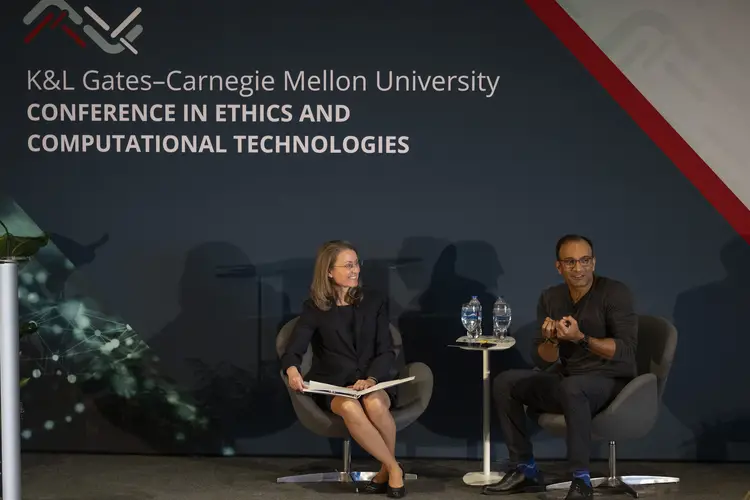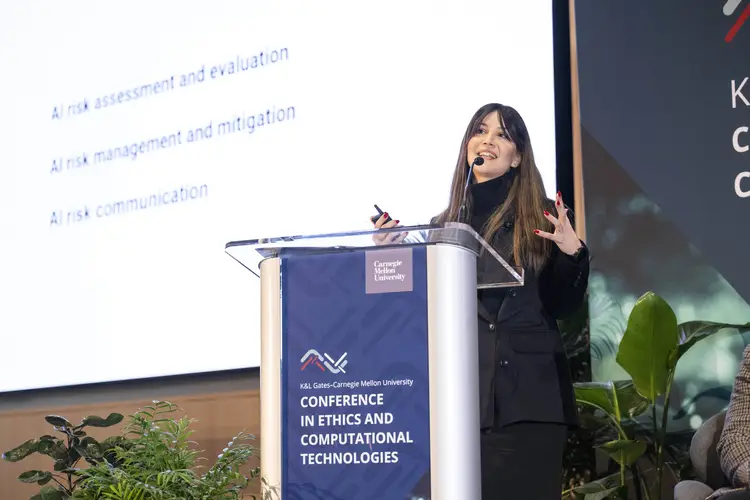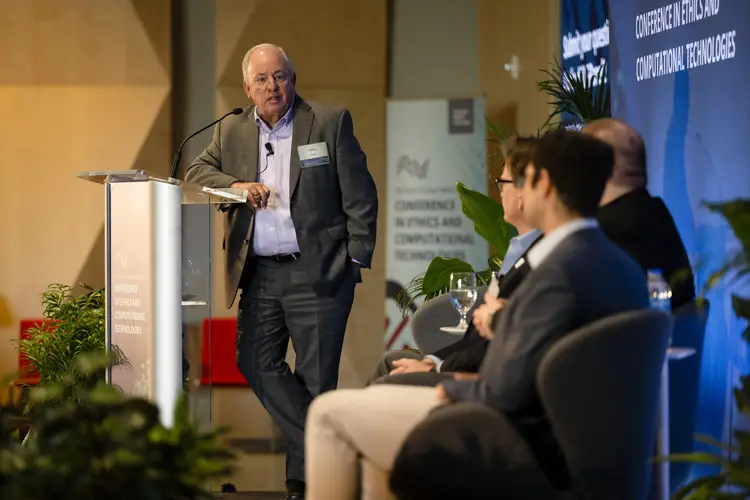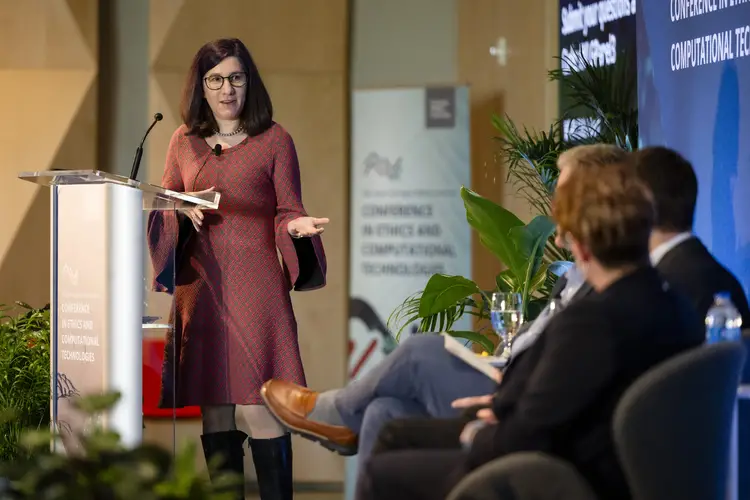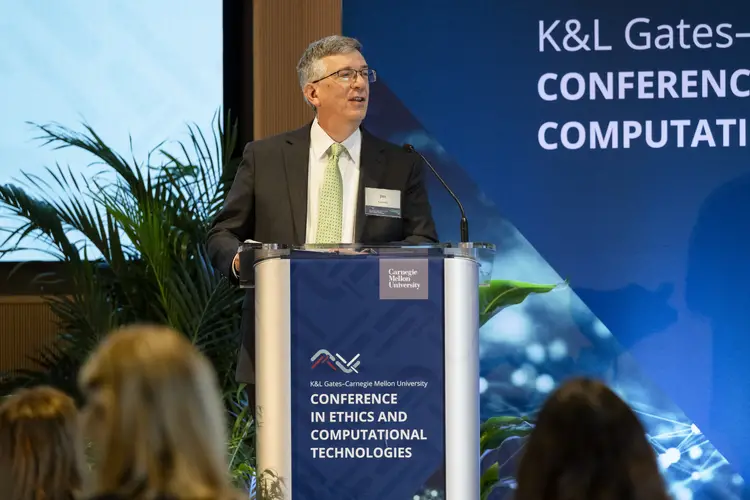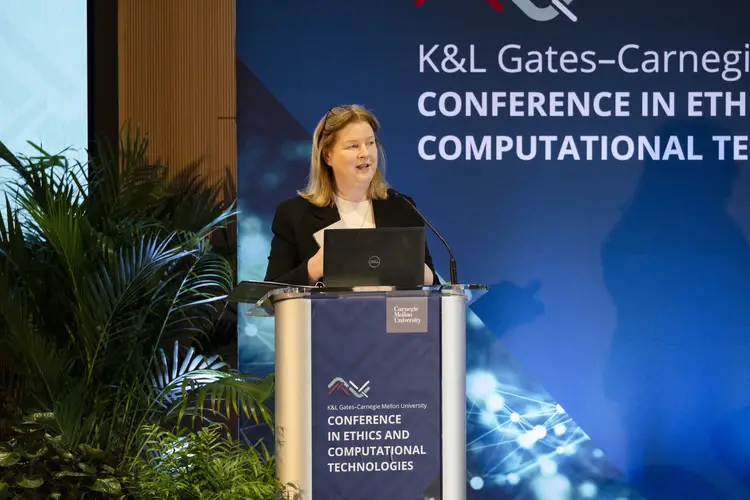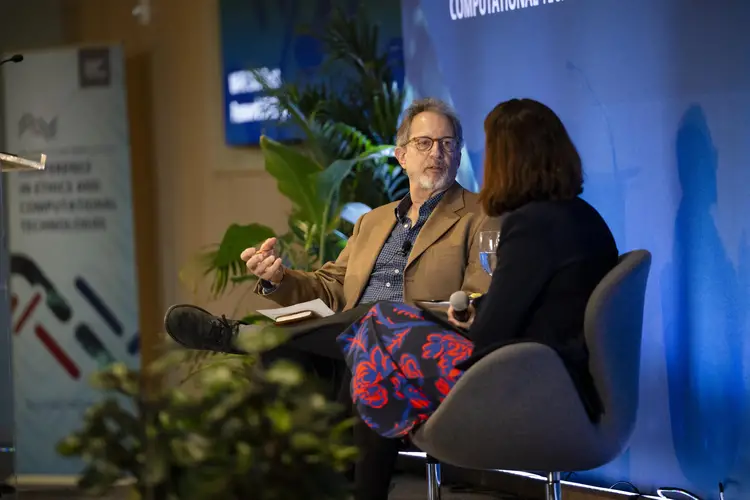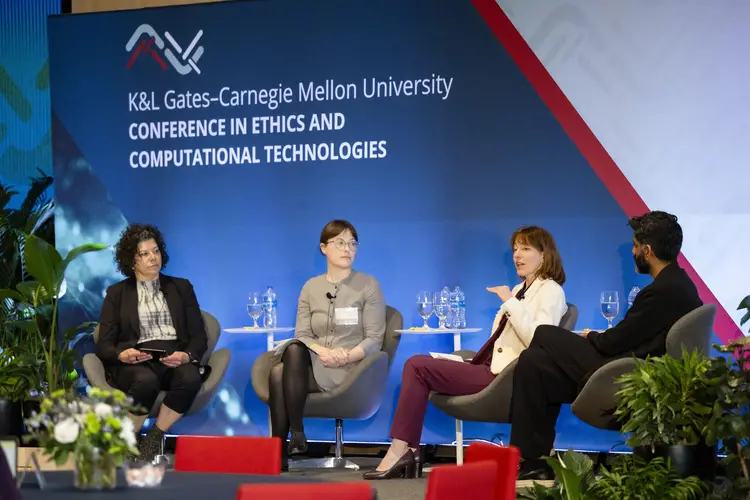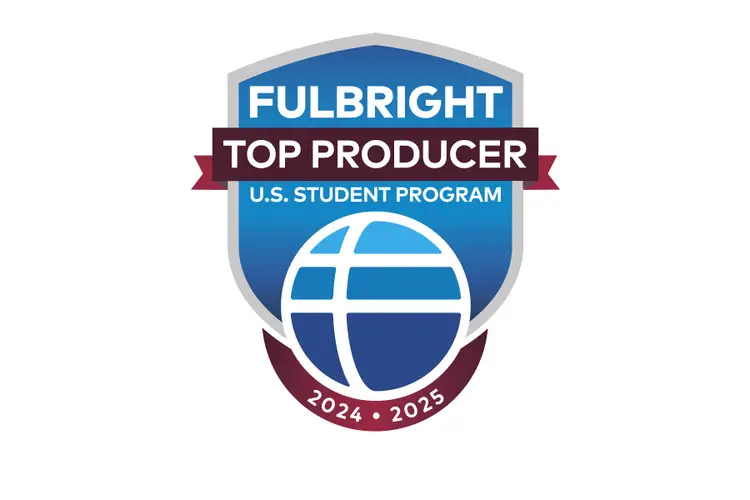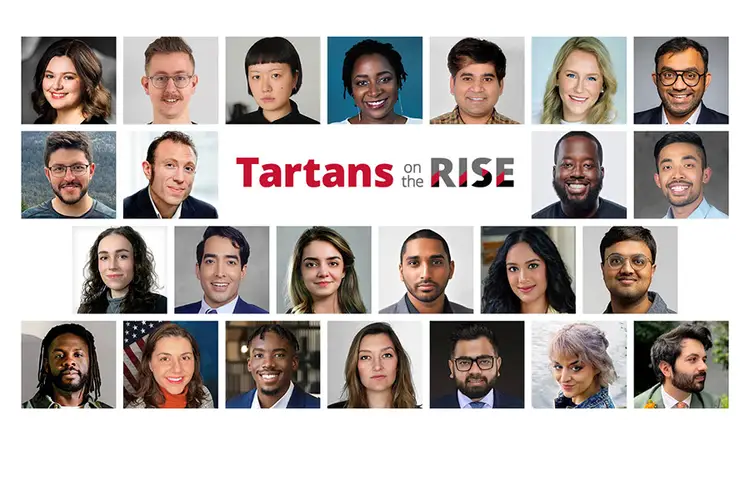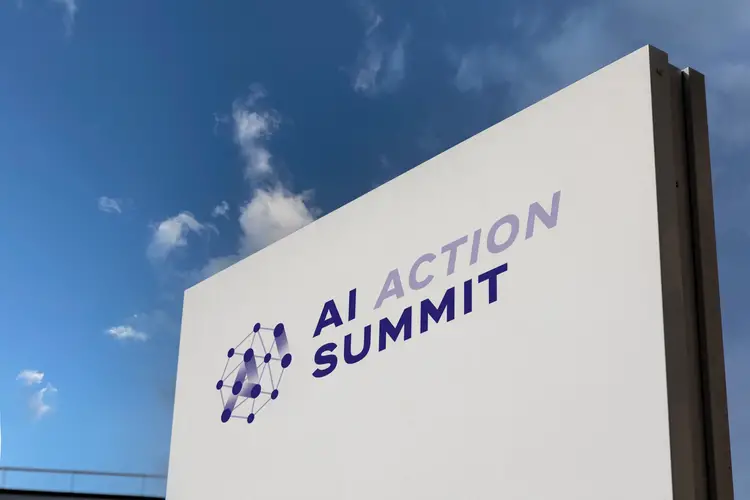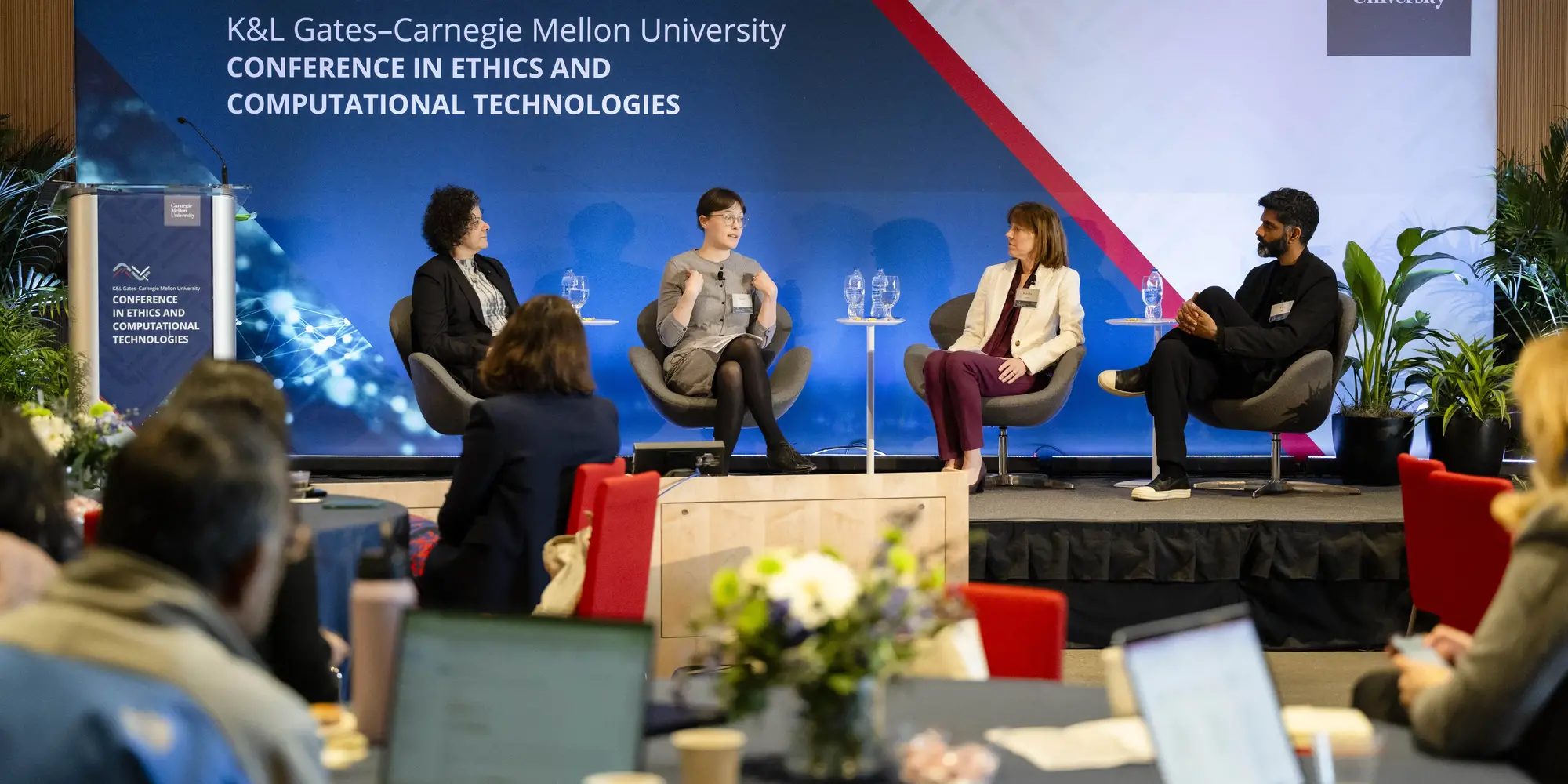
Experts Tackle Generative AI Ethics and Governance at 2025 K&L Gates–CMU Conference
Media Inquiries
Thought leaders from industry, academia, government and civil society gathered to discuss the ethics and governance of generative artificial intelligence (GenAI) March 10-11 at the K&L Gates-Carnegie Mellon University Conference in Ethics and Computational Technologies(opens in new window).
Sponsored by the K&L Gates Endowment for Ethics and Computational Technologies, the conference examined the new ethical considerations and societal implications of GenAI and weighed the strengths and weaknesses of existing approaches to the governance of the technology to ensure safe, responsible and ethical use.
“Many of us recognize AI as one of the most important and transformative intellectual developments of our time,” said CMU President Farnam Jahanian(opens in new window), as he welcomed conference attendees. “Today we’re truly at an inflection point because of the proliferation of these technologies. These innovations move at such a fast speed that our development of ethical and policy frameworks has to keep up. Our colleagues at Carnegie Mellon, and the scholars and researchers that collaborate with them, are deeply involved in helping to envision and build a future where people, policy and technology are better connected and better served. With that, conversations like these are vital to getting AI right and fully leveraging AI technologies for the benefit of humanity.”
The conference examined the impact of AI on many sectors, including education, health care, transportation and national security.
David Lehman, a partner at K&L Gates, said that CMU has been at the forefront of the emerging field of AI governance, shaping its trajectory through groundbreaking research and policy engagement.
“As we see extraordinary developments in AI and the unprecedented momentum attracted by generative AI technology and its application in society, we’ve all become aware of how critical it is to have a well-informed, clear public discourse around the impacts and opportunities of AI,” he said.
The joint conference was first held at CMU in 2018(opens in new window) and is led by initiative leaders Hoda Heidari(opens in new window) from the School of Computer Science(opens in new window) and Alex John London (opens in new window)from Dietrich College of Humanities and Social Sciences(opens in new window). A summary of the content produced through the discussions will be published through the K&L Gates Initiative’s website.
